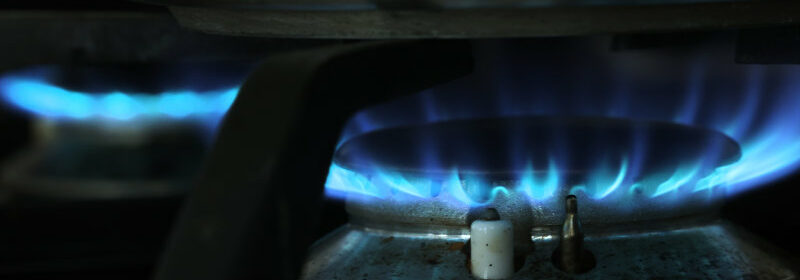Renters, low-income households left behind in race to turn off gas

Save articles for later
Add articles to your saved list and come back to them any time.
Reducing the number of gas appliances in rental and low-income households looms as a major challenge in the Victorian government’s push to meet ambitious climate targets, cut energy bills and avert the threat of gas supply shortfalls.
Plans are being developed to encourage households to switch their gas-fired heaters, stoves and hot-water systems to electric alternatives in Victoria, where more than 2 million homes and businesses still rely on gas, the most of any state.
The 5 million Australian homes with gas connections account for about 17 per cent of the fossil fuel that is consumed each year.Credit: Getty Images
The government is working on a Gas Substitution Road Map, saying it will help bring down rising residential energy bills, form a key plank of Victoria’s efforts to halve the statewide carbon footprint by 2030, and ease pressure on tightening supplies of the fossil fuel across south-eastern Australia.
Research from the Brotherhood of St Laurence, released on Monday, suggests policymakers will need to pay particular attention to addressing two key barriers: lower-income households unable to afford the high upfront cost of buying new electric appliances, and renters feeling they have little or no say over what appliances are installed in their homes.
“Getting off gas will reduce household energy bills and make an essential contribution to reducing Australia’s greenhouse gas emissions,” Brotherhood of St Laurence climate and energy lead Damian Sullivan said.
“However, lower-income households are likely to be the last ones left on the gas network, paying more, unless further support is put in place.”
Most households that had received energy-related support from the Brotherhood of St Laurence and agreed to be surveyed reported a high level of backing for the transition away from gas, but few had electric appliances installed.
The Melbourne-based social service group recommends providing means-tested rebates and low or no-interest loans for reverse-cycle airconditioners, heat pumps and hot water systems, and the introduction of energy efficiency standards requiring landlords to install electric appliances in rental homes.
“Electrification and energy efficiency upgrades are essential because they lead to robust energy bill reductions, which last over time, unlike one-off payments,” Sullivan said.
In the fight to avert the most catastrophic impacts of climate change, world leaders, including the United Nations, have been escalating calls for developed countries to urgently limit their use of fossil fuels and output of harmful greenhouse gas emissions.
Efforts to reduce gas demand have taken on an added degree of urgency in Australia amid warnings from two agencies that monitor domestic supplies – the Australian Competition and Consumer Commission and the Australian Energy Market Operator – that time is running out to prevent yearly gas shortfalls emerging from 2027 in Victoria, NSW and South Australia.
Australia is one of the world’s largest producers of gas, but massive volumes of production from Queensland’s gas fields are locked into long-term export contracts to LNG buyers, while several gas fields that have supplied southern markets from the Bass Strait for decades are entering rapid decline without new projects to replace them.
Victorian Energy and Climate Action Minister Lily D’Ambrosio said on Monday that gas was becoming an increasingly expensive fuel to heat Victorians’ homes and hot-water systems.
“The challenge is far bigger than it ever has been when you consider the significant increases in prices that we are paying for gas,” she said. “What is critical is that we manage this transition in a way that keeps prices as flat as we can.”
Victorian Minister for Energy and Climate Action Lily D’Ambrosio.Credit: Chris Hopkins
D’Ambrosio said the government would provide an update on the development of its gas-substitution policy later this year, and would continue monitoring domestic gas supplies. But she stressed that the federal government had a bigger role to play in ensuring enough gas was available for domestic consumers, including factories whose processes cannot readily switch to electricity, saying too much Australian gas continued to be exported to overseas buyers.
“As we transition off fossil gas, that is going to alleviate the gas supply challenge, but that’s not going to happen overnight. We can’t turn the tap off overnight,” she said. “We need to make sure there is that balance there of supply to meet what our needs are.”
In a report last month, the Grattan Institute think tank said thousands of new homes were still being connected to the gas network every day, and warned Australia would fail to meet its target of being a net zero emitter by 2050 unless its ensured homes became all-electric.“It’s a big task,” the report said. “There are many barriers, and all must be addressed.”
The institute urged federal and state governments to provide subsidies and low-interest loans to home owners who buy electric appliances such as hot water systems, cooktops and household heaters, but warned this would work only if coupled with a deadline to stop selling gas appliances.
The Business Briefing newsletter delivers major stories, exclusive coverage and expert opinion. Sign up to get it every weekday morning.

